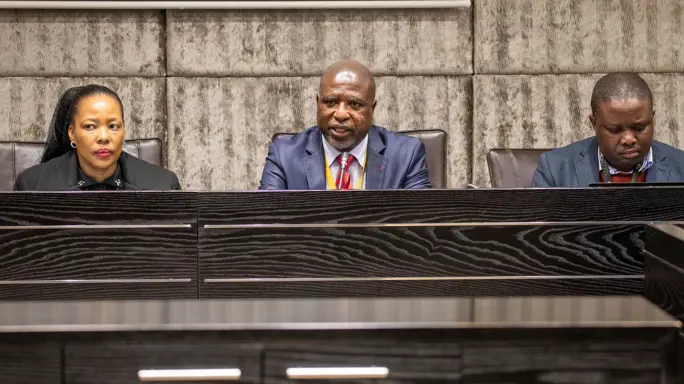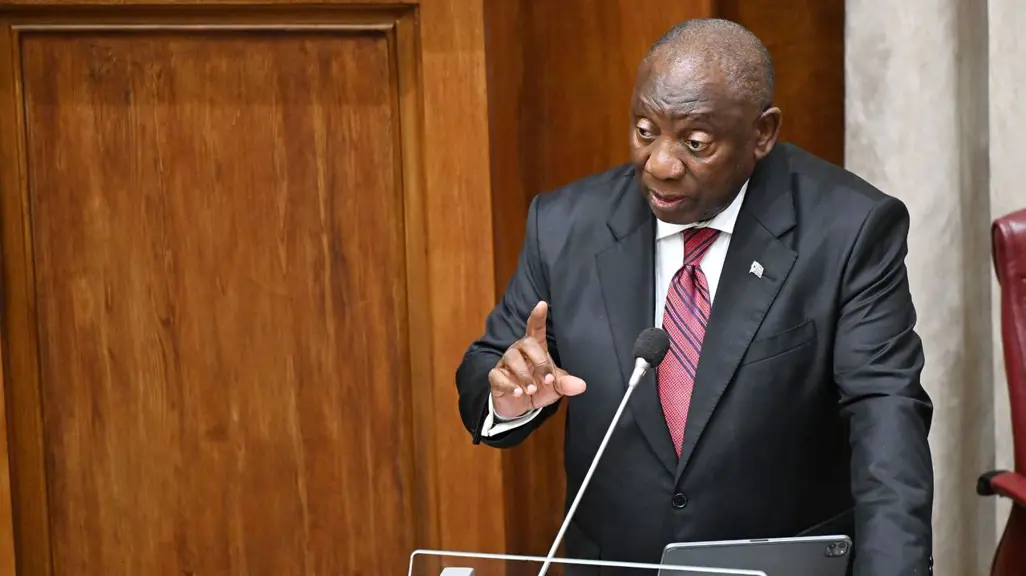Unveiling SAPS shadows: Parliament’s probe into Police corruption nears a critical juncture

The ad hoc committee investigating allegations made by KZN Police Commissioner Lieutenant-General Nhlanhla Mkhwanazi elected Molapi Soviet Lekganyane as its chairperson on 5 August 2025. Photo Credit- EWN
A parliamentary committee is peeling back the layers of one of the nation’s most pressing issues: corruption within the South African Police Service- SAPS. On September 8, 2025, the Portfolio Committee on Police announced it would outline its next steps by the end of the week, following an intensive inquiry into allegations of systemic misconduct. Chaired by Ian Cameron, the committee has spent months gathering evidence from whistleblowers, senior officers, and civil society groups, unearthing troubling accounts of bribery, extortion, and mismanagement that threaten public trust in law enforcement. As South Africans await the committee’s recommendations, the probe represents a pivotal moment in the fight for a police service that serves rather than exploits its citizens.
The origin of the crisis
The SAPS has long been a cornerstone of South Africa’s democracy, tasked with upholding law and order in a country grappling with high crime rates. Yet, persistent allegations of corruption have eroded its credibility. From officers allegedly pocketing bribes to turn a blind eye to criminal activities, to high-ranking officials implicated in tender fraud, the scope of the problem is staggering. The committee’s inquiry, launched earlier this year, was spurred by a surge in public complaints and high-profile cases, including a 2024 scandal involving a Gauteng police commissioner accused of colluding with organized crime syndicates. Public opinions on social media echoes frustrations, with users sharing stories of encounters with corrupt officers and demanding accountability.
How the SAPS crisis was revealed
The committee’s hearings have been a raw and revealing affair, bringing together a chorus of voices rarely heard in public. Whistleblowers, risking their careers, recounted instances of officers soliciting bribes from motorists or protecting illegal businesses for a cut of the profits. Community activists, particularly from high-crime areas like Khayelitsha and Soweto, described a culture of fear where residents avoid reporting crimes due to distrust in the police. One anonymous officer, testifying behind a screen, spoke of pressure from superiors to “look the other way” during investigations involving politically connected figures. These accounts paint a picture of a service riddled with systemic issues, compounded by inadequate oversight and a lack of resources for ethical officers to do their jobs effectively. For many South Africans, these revelations are both shocking and all too familiar.
What South Africans, the world expect from the parliamentary committee
The stakes for the committee’s work could not be higher. South Africa’s crime statistics, over 45,000 murders and 160,000 robberies reported in 2024 only shows the urgent need for a trustworthy police force. Yet, corruption undermines efforts to combat crime, leaving communities vulnerable and perpetrators emboldened. Residents, citizens, feel the impact daily. The committee’s forthcoming recommendations, expected to include stricter anti-corruption measures and enhanced whistleblower protections, aim to restore faith in the SAPS. However, skepticism persists, with some citizens questioning whether political will exists to implement meaningful change in a system where patronage networks run deep.
Conclusion
As the event begins to unfold, all eyes are on the parliamentary committee. The anticipated announcement could propose sweeping reforms, such as an independent anti-corruption unit within SAPS or mandatory asset declarations for senior officers. Yet, the road to reform is filled with challenges, including resistance from entrenched interests and budget constraints in a cash-strapped government. The committee’s work also intersects with broader efforts, like the National Anti-Corruption Strategy, which seeks to strengthen accountability across public institutions. For now, South Africans hold onto cautious hope, yearning for a police service that protects rather than exploits. As the nation awaits the committee’s next steps, this probe could mark a turning point, or another missed opportunity in the fight to reclaim the SAPS as a beacon of justice.




